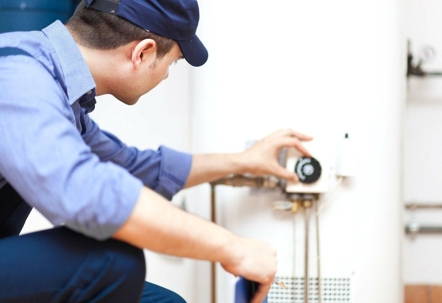A water heater breakdown can be a big disruption in your daily life. Fortunately, water heaters usually don't break down suddenly. Often, you can watch out for a number of signs to have advanced warning that your heater is nearing the end of its life. Consider replacing your water heater if you notice any of these symptoms in your home.
⦁ Creaking Noises
Noise from your water heater is usually one of two types. The first often sounds like gravel or small objects inside of your water heater tank. This occurs due to sediment buildup in the bottom of the tank from minerals in your water. Small pieces of sediment can break loose and float around inside the tank. While sediment can be harmful to the heating element in your heater, it is often removable by flushing the tank.
The other noise you might hear from your water heater is a creaking or groaning noise. This is the result of thermal expansion in the tank, water lines, and other parts of your heater that come in contact with water. These metal parts expand with heat and contract as they cool and may make a creaking sound in the process. If the creaking becomes excessive, part of your water heater may be near its breaking point, and a serious leak could be around the corner.
⦁ Discolored Hot Water
No one likely wants to turn on their faucet and get murky, rust-colored water. While this can certainly be a symptom of a water heater nearing failure, you should perform a couple of tests before you start planning to replace it. First, check that the discoloration only comes from the hot water side. Naturally, if your cold water is discolored as well, your water heater isn't the source.
Next, try a few different faucets in your home and make sure the rusty hot water is present in each of them. If only one faucet produces rusty water, the supply line to that faucet is likely corroded inside. If all hot water sources in your home are rusty while the cold lines are not, you may have significant sediment buildup inside your water heater tank. Repair or replacement may be in order.
⦁ Unexplained Bill Increases
A faulty water heater can cause unexpected increases in your water or energy bill. High energy use is usually from a heavy layer of sediment on the heating element. The sediment insulates the heating element, forcing your heater to run longer to heat the water in the tank. In other cases, damaged insulation may allow excess heat to escape around the heater, reducing its efficiency.
If your water bill has crept upward, a water heater leak is one of several possible causes. Water heaters can leak around fixtures and fittings or may leak directly from the tank if a crack develops in the side of the unit. Since a water
heater tank often holds tens of gallons of water, locate and repair water heater leaks before they get worse. That way, you can avoid serious water damage to the area around the heater.
When inspecting your water heater for leaks, check both the drain valve near the bottom of the heater and the pressure relief valve near the top. Call a plumber for service if these valves have leaked or if corrosion is on them. Finally, remember to listen for the sound of dripping or running water even if you have no visible signs of a leak.
Knowing the signs that your water heater is going bad can save you a lot of frustration and help you avoid expensive repairs. If you have problems with your water heater or any other part of your home's plumbing, the professional team at Plumb Rite can help! Call today.
Additional Service Areas
Omaha, NE
La Vista, NE
Bellevue, NE


